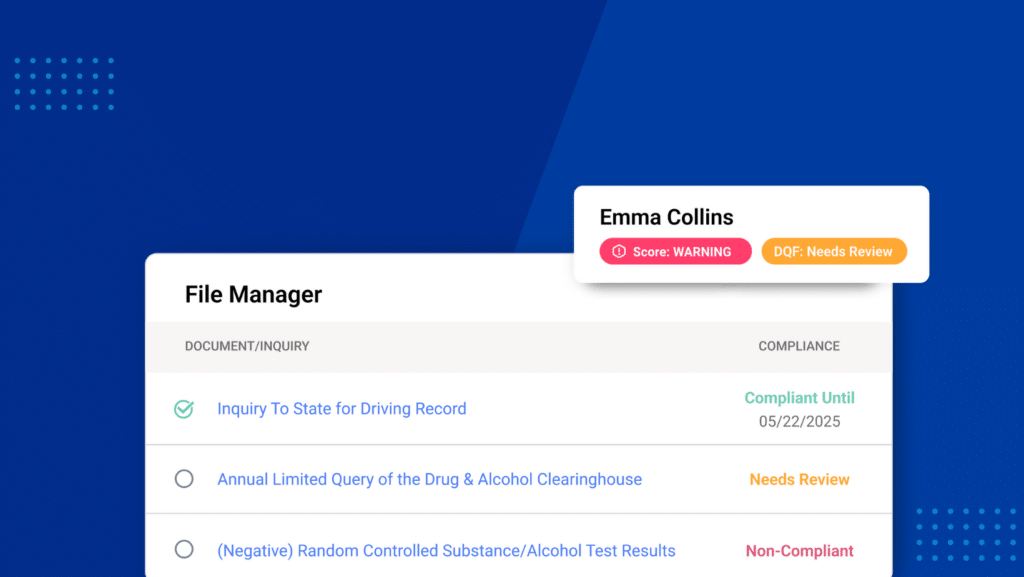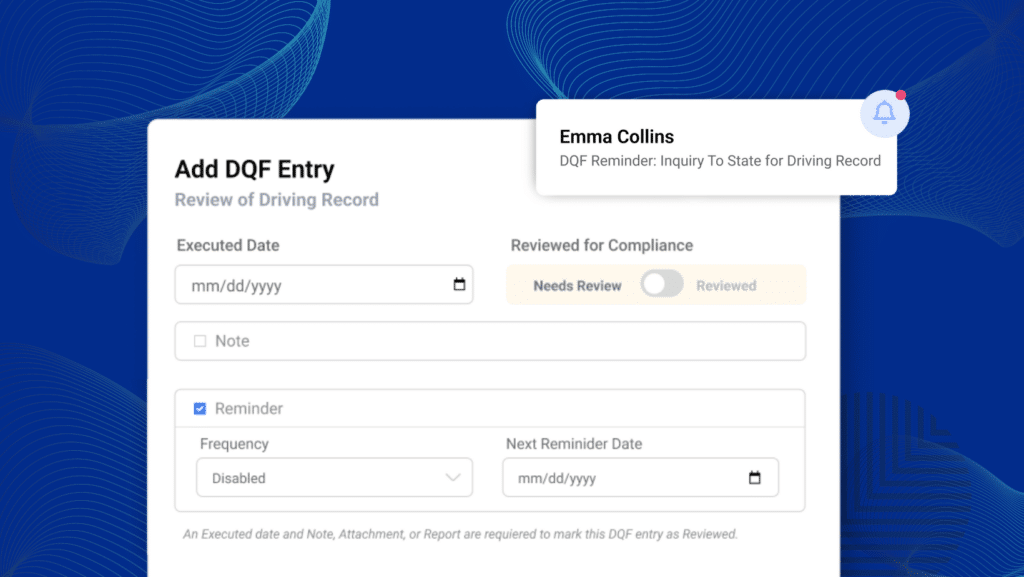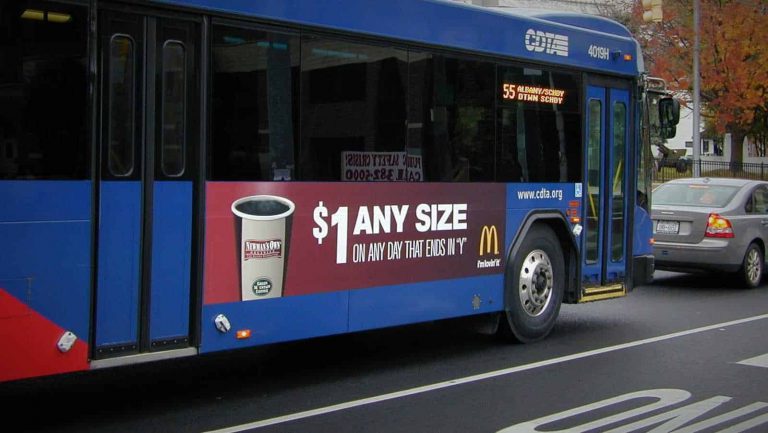Driver Qualification Files: What To Include & How To Maintain Them?

Maintaining up-to-date Driver Qualification Files (DQFs) is critical for companies that employ commercial drivers. These files are essential for compliance with the Department of Transportation (DOT) and for driver adherence to safety standards.
With penalties for non-compliance rising, keeping these records accurate and current is more critical than ever. Read on to discover how to keep your DQFs audit-ready and your fleet rolling smoothly.
What are driver qualification files (DQF)?
DQ files are a collection of documents and records that verify a commercial driver’s fitness, compliance, and qualifications. The Federal Motor Carrier Safety Administration (FMCSA) mandates these files for drivers who operate a vehicle that meets one of these standards:
- Combination vehicles with a gross combination weight rating (GCWR) or gross combination weight (GCW) of 26,001 lbs. and a gross vehicle weight rating (GVWR) or gross vehicle weight (GVW) of more than 10,000 pounds
- Heavy straight vehicles with a GVW or GVWR of more than 26,001 pounds
- Any vehicle designed to transport 16 or more people, including the driver
- Any vehicle used to transport hazardous materials
What documents must a DQF include?
A Driver Qualification File typically includes the following documents and reports:
DQF Checklist
- Driver’s Application for Employment: The driver must complete a comprehensive employment application that includes personal information, employment history, and references.
- Motor Vehicle Record (MVR): Obtain an MVR from every state where the driver held a license/permit in the past three years.
- Road Test Certificate or Equivalent: The driver must pass a road test administered by the employer or provide a copy of a valid Commercial Driver’s License (CDL) or a certificate from a previous employer attesting to the completion of a road test.
- Medical Examiner’s Certificate (MEC): A current Medical Examiner’s Certificate, signed by a licensed medical examiner listed on the National Registry of Certified Medical Examiners, confirming the driver is physically qualified to drive a commercial vehicle.
- Driver’s Certification of Compliance with Controlled Substances and Alcohol Use and Testing Regulations: A signed statement from the driver acknowledging that they understand and will comply with the controlled substances and alcohol use and testing regulations.
- Pre-employment Drug Test Results: Proof that the driver has undergone and passed a pre-employment drug test, as required by the FMCSA.
- Safety Performance History Records: Records from previous employers regarding the driver’s safety performance history, including details of any accidents and violations of drug and alcohol regulations, if applicable.
The FMCSA requires you to hold on to most of the documents in a driver’s qualification file for as long as they work for you, plus the next three years.
Avoiding the cost of non-compliance
Maintaining drivers’ qualification files is crucial for motor carriers to ensure regulatory compliance, safety, and operational efficiency. According to the FMCSA, in 2023, nearly 90% of offsite audits resulted in at least one violation.
Penalties for failing to maintain proper DQFs can vary but typically include:
- Fines: Depending on the severity and nature of the violation, fines can range from $1,000 to $10,000.
- Out-of-Service Orders: Non-compliance can lead to drivers being placed out of service until the required documentation is corrected.
- Increased Audits: Companies found in violation may face more frequent and detailed audits from the FMCSA.
Comprehensive files, including driving records and medical certificates, ensure drivers are qualified and healthy, reducing accident risks and enhancing safety. Moreover, proper documentation also aids in securing better insurance rates and coverage, protecting against litigation by demonstrating due diligence.
Keeping up-to-date files with a DQF Checklist tool
If you employ and manage multiple drivers, handling their DQF can become a real challenge without the right tools.
Start by putting aside paper files and cabinets and switch to a digital platform like a DQF Checklist tool. Integrated within our MVR Monitoring, our DQF Checklist securely centralizes all files, combining the data you need to make safe decisions regarding your drivers.

As the FMCSA is now conducting offsite audits, auditors expect a faster documentation turnover. A DQF Checklist facilitates this by allowing carriers to digitize files and gain a comprehensive view of their DQF status. Embark Safety’s DQF Checklist makes it simple to spot employees who need their DQFs reviewed due to incomplete or expired documentation.
Moreover, a DQF Checklist tool enhances file organization, reducing the risk of losing documents or missing renewals. Organized files facilitate internal audits, performance reviews, and management decisions, improving efficiency and maintaining company standards. Our DQF Checklist simplifies setting reminders for key dates and renewals, including medical certificates, MVRs, drug tests, and more.

Also, it’s imperative to emphasize the significance of training your administrative staff and drivers on DQFs and proper documentation. To enhance this process, our DQF checklist offers templates for each driver file, guaranteeing comprehensive and precise documentation.
Integrated driver safety and compliance technology
Staying proactive, leveraging technology, and maintaining a culture of compliance are key to successfully managing Driver Qualification Files. Remember, the cost of non-compliance is high, both financially and operationally, making diligence in this area essential for every business.
Want to learn how our DQF Checklist tool works? Book a demo or Contact us.
*We are not lawyers. Consult with your legal counsel to ensure your processes and procedures meet/ or exceed safety standards and compliance regulations. Please read our legal disclaimer.






